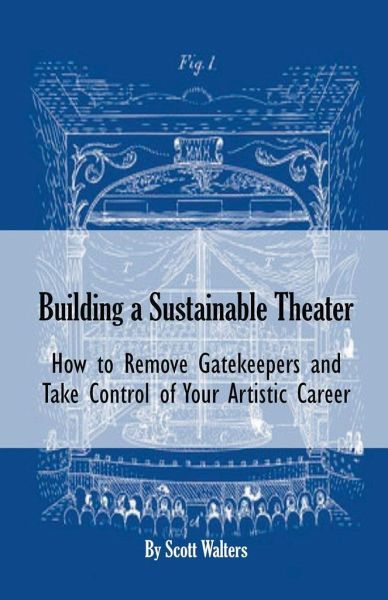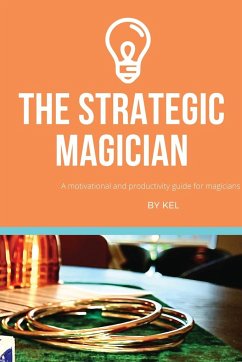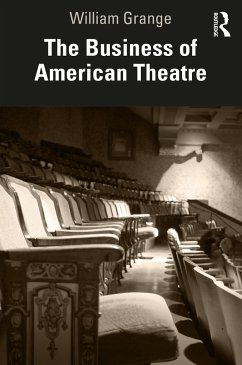
Building a Sustainable Theater
How to Remove Gatekeepers and Take Control of Your Artistic Career
Versandkostenfrei!
Versandfertig in 1-2 Wochen
16,99 €
inkl. MwSt.

PAYBACK Punkte
8 °P sammeln!
You are an artist, not an employee. This book is about change, innovation, rebooting the theater system in order to make it more widely available and its artists more strongly empowered. It is written for theater artists who are trailblazers and bushwhackers who want to take control of the theatrical means of production by starting their own theaters--theaters that are sustainable financially, artistically, and personally. If that's you, read on. The difference between an artist and an employee has little to do with the quality of your work. Works of overwhelming genius have been created by em...
You are an artist, not an employee. This book is about change, innovation, rebooting the theater system in order to make it more widely available and its artists more strongly empowered. It is written for theater artists who are trailblazers and bushwhackers who want to take control of the theatrical means of production by starting their own theaters--theaters that are sustainable financially, artistically, and personally. If that's you, read on. The difference between an artist and an employee has little to do with the quality of your work. Works of overwhelming genius have been created by employees, and works of mind-numbing mediocrity have been created by artists. The distinction I am drawing concerns one thing only: agency. Artists have agency. They are in control. They develop a personal vision, they set goals, and they chart a course to achieve them. They do not have to fit into somebody else's ideas about them. They do not have to ask permission. They initiate. Artists are owners. A theater is a small business, something that will exist beyond a single production or even a single year. The goal is the creation of a company in both the business sense of a "structure that is a separate legal entity from its owners," but also in the theatrical sense of a group of artists who have an ongoing creative relationship. I'll be describing some strategies and techniques that will empower you to become an "independent artist." So what do I mean by "independent"? Think of the Declaration of Independence, in which the Founding Fathers declared themselves free of the control of England. Same thing here: independence means freedom from the control of others. It is the freedom to control what you do, when you do it, and where you do it without asking permission of an external authority. It is the freedom to be in charge of your artistic development-the projects and experiments you need to do to expand your skills and imagination and fully embody your vision. You're in charge. You're the boss. Our current theater system turns artists in to employees. This book seeks to change that one artist at a time by showing you that, with some thought, planning, and research, you have the ability to start a sustainable theater and lead a creative life that is fulfilling and engaging.












